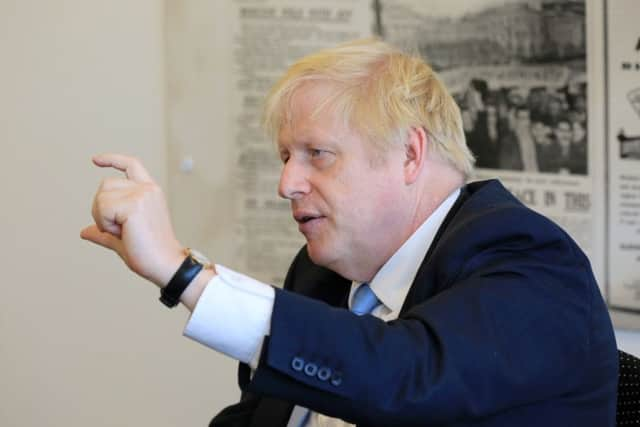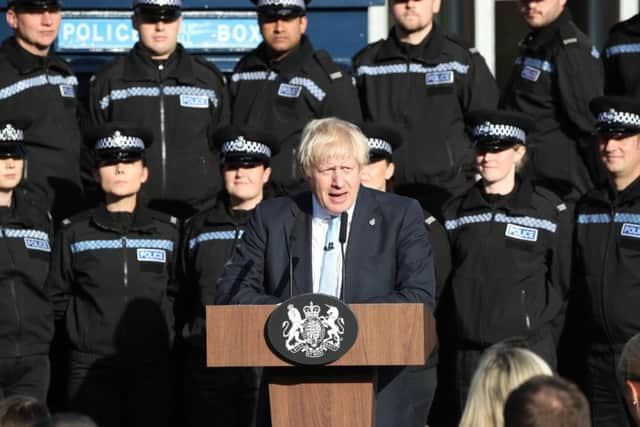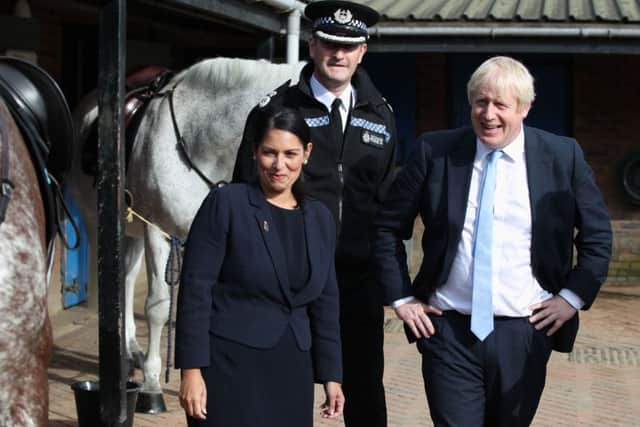Boris Johnson’s recognition of Yorkshire’s importance as general election and Brexit tensions grow – The Yorkshire Post says
His second visit to the county in a month, and his third to the North since becoming PM six long weeks ago, Mr Johnson knows that the election outcome here will be key to his political fate.
Advertisement
Hide AdAdvertisement
Hide AdAnd it is to the Prime Minister’s credit that he also visited The Yorkshire Post, the most trusted newspaper in Britain, to answer questions about his future plans for the region. He does realise this remains a ‘can do’ county with vast untapped potential.


After all, the foundations of Margaret Thatcher’s three wins – and John Major’s triumph in 1992 – were built in Yorkshire and the ‘swing’ seats along the M62 corridor. Constituencies which turned to Labour in 1997 when the Tories paid a heavy price for splits over Europe, and neglect of the North, they only began to return to the Tory fold under David Cameron.
Advertisement
Hide AdAdvertisement
Hide AdAnd while Theresa May ultimately chose to launch her 2017 manifesto in the target seat of Halifax – Boris Johnson, as Foreign Secretary, was among those present – the Tories actually lost electoral ground in this region to Labour.


Furthermore hopes of gaining Labour-held seats, which had voted heavily in favour of Britain’s departure from the EU, evaporated as the campaign – called by Mrs May because of Brexit – became dominated by domestic policies and, tragically, the Manchester and London terror attacks.
As such, Mr Johnson – and his chief strategist Dominic Cummings – must be more certain of their chances after an unprecedented week at Westminster which saw the PM lose his Commons majority as well as control of his party, Commons order paper, Brexit plan and election timetable.
An inauspicious start to any campaign, it appears they’ve identified Britain’s ‘do or die’ departure from the European Union on October 31 as the defining issue because of a need to honour, and implement, the 2016 referendum result before the country can move forward.
Advertisement
Hide AdAdvertisement
Hide AdIt means this election is much more like a re-run of the referendum, rather than a general election per se, and Mr Johnson gets that in spades. But they need to remember this. Brexit impacts on every family and families will want reassurances – rather than obfuscation – that Mr Johnson’s preferred course of action is the right one for their jobs and livelihoods.


The most successful parties are also those which can build a coalition of support. Unlike 2015, the Lib Dems – and, potentially, the Brexit Party – are back in play just as the Tories purge centrist MPs and grandees opposed to a no-deal Brexit.
And, finally, Mr Johnson needs to show that his welcome commitments to the Northern Powerhouse agenda are for real – words must translate into action.
However, because voters will be expected to elect a government for a full five-year term, it is encouraging that he does want the debate to extend beyond Brexit to the key public services, the future of the economy and how best to smash the North-South divide for the benefit of all.